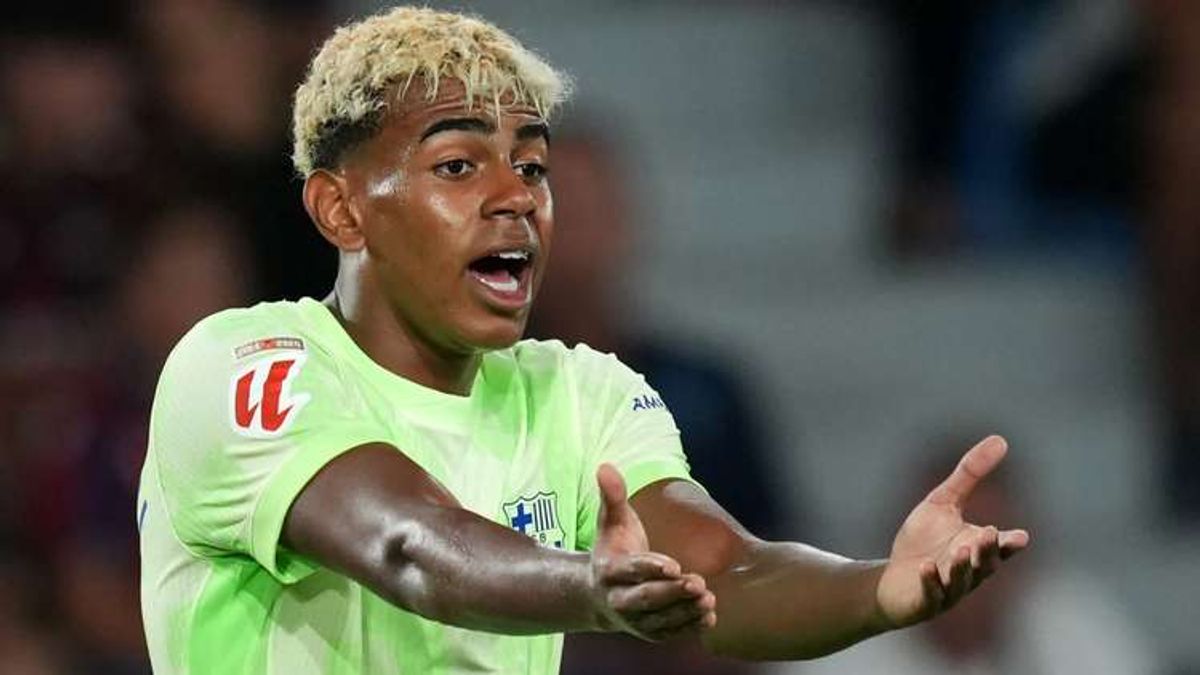Vote of confidence: Chelsea Back Enzo Maresca Amid Controversial Squad Policy
Chelsea have thrown their full support behind Enzo Maresca's heavy rotation policy despite growing scrutiny following a 2-2 draw with Qarabag. Find out how the club's modern footballing strategy is at the heart of their decision.

Chelsea have reportedly thrown their full support behind Enzo Maresca's heavy rotation policy despite growing scrutiny following a 2-2 draw with Qarabag in the Champions League. Club executives insist the Italian is managing a young squad exactly as intended and believe his strategy will deliver long-term success despite short-term inconsistencies.Per The Times, Chelsea have publicly and privately backed Maresca’s approach to squad management following another heavily rotated lineup in midweek European action. The Italian made seven changes for the 2-2 draw with Qarabag, extending his streak to five consecutive matches with at least seven alterations to his starting XI. Despite surrendering points to the Azerbaijani side, who claimed their first-ever draw against English opposition, senior Chelsea figures remain convinced that Maresca’s methods are both necessary and effective for the long term.The decision to shuffle personnel so frequently has been met with mixed results; Chelsea’s 4-3 win over Wolves and a 1-0 triumph at Tottenham showed the policy can yield results, but defeats like the 2-1 loss to Sunderland and the midweek stalemate have prompted external questions about rhythm and chemistry. Internally, however, there is little concern. Chelsea’s leadership view rotation as a key part of their strategic plan to protect the fitness of their young, evolving squad and to manage a demanding schedule across four competitions.Wednesday’s draw in Baku again highlighted both the benefits and risks of such an approach. A rotated side, averaging just 23 years of age, struggled for cohesion early on, falling behind before Alejandro Garnacho salvaged a point.Chelsea’s hierarchy have made it clear that Maresca’s management style aligns with the club’s modern footballing strategy under co-sporting directors Paul Winstanley and Laurence Stewart. Their vision is centred around youth development, tactical adaptability, and minute management to avoid burnout across a gruelling schedule that includes the Champions League, Premier League, Carabao Cup and the FA Cup, and all these commitments come after a summer of Club World Cup action.The policy also serves a practical purpose. With a squad rebuilt around players aged 18 to 25, many of whom are in their first or second Premier League seasons, the coaching staff are deliberately pacing their development. Maresca’s willingness to rest stars like Enzo Fernandez, Moises Caicedo, and Reece James, even for high-profile fixtures, is viewed as responsible rather than reckless. The club’s analytics department has reportedly provided strong data in support of the approach, suggesting fewer long-term injuries and improved physical output among regular starters.The Qarabag draw may have tested that belief, but the context provides insight into Chelsea’s thinking. The fixture came just three days after a draining Premier League win at Tottenham and required a 5,000-mile round trip to Baku, an intense turnaround that left several players nursing minor knocks.Romeo Lavia’s early injury meant Caicedo entered after just eight minutes, while Fernandez was introduced at halftime to stabilise a shaky midfield. Still, there were flashes of Chelsea’s potential amid the chaos. 18-year-old Estevao, now the club’s top scorer this season, struck early, and Garnacho’s late equaliser salvaged a point in an otherwise uneven performance. Chelsea’s rotation-heavy approach has also yielded positives across the wider campaign, including increased game time for promising prospects like Tyrique George, Jorrel Hato, and Jamie Gittens, all of whom are expected to form part of the club’s long-term core.Critically, Maresca’s relationship with Chelsea’s multi-director structure has been described as strong and communicative. He is said to meet weekly with the sporting leadership team to align on squad planning and player workloads, ensuring that decisions around selection are made collaboratively.Chelsea’s immediate focus turns back to domestic competition, where they face Wolves at Stamford Bridge this weekend. The club expects Maresca to continue with his rotation-heavy model, albeit with tweaks to ensure balance and stability as the team pursues Champions League qualification. The coaching staff believe that once key players regain fitness and younger stars find rhythm, results will begin to mirror performances more consistently.
The Backing of Chelsea Executives
Chelsea executives have publicly and privately backed Enzo Maresca's approach to squad management following a heavily rotated lineup in recent European action. Despite criticism over short-term inconsistencies, the club believes in Maresca's strategy for long-term success.
Benefits and Challenges of Rotation
The decision to rotate the squad heavily has shown mixed results, with wins like the victory over Wolves and Tottenham contrasting with defeats such as the loss to Sunderland. However, Chelsea's leadership remains convinced that rotation is necessary to protect the fitness of their young squad.
Modern Footballing Strategy at Chelsea
Maresca's management style aligns with Chelsea's vision under co-sporting directors Paul Winstanley and Laurence Stewart. The focus on youth development, tactical adaptability, and managing player workload is key to navigating a demanding schedule across multiple competitions.
Balancing Development and Performance
With a squad centered around young players, Chelsea's coaching staff is pacing their development carefully. Resting key players and giving opportunities to promising prospects is seen as a responsible approach, supported by data from the club's analytics department.
Looking Ahead
Despite the challenges faced in the recent draw against Qarabag, Chelsea is committed to Maresca's rotation-heavy model. As the team aims for Champions League qualification, adjustments will be made to strike a balance between rotation and stability.












